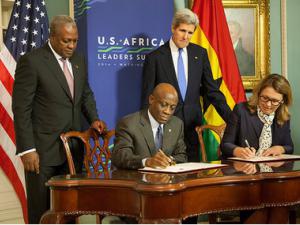Analysis of the 2015 budget of the Ministry of Health shows that the provision of key health infrastructure across the country has been left to the generosity of donors, who are expected to provide as much as 87 percent of the allocation for constructing health infrastructure.
While government had trumpeted gains made in the provision of health infrastructure across the country, a B&FT analysis of the Health Ministry’s 2015 budget indicates that government’s resources are largely devoted to payment of health workers’ salaries and the rest is spent on goods and services, with barely anything left to expand the infrastructure base.
Out of a budgeted amount of GH¢654million to be invested in infrastructural expansion, donors are making available GH¢570million -- with various internally generated funds of public healthcare providers accounting for GH¢83million and government, a paltry GH¢1million.
Although donors have been actively involved in the country’s health sector since the early 1990s, the country’s transition from a low-income to lower middle-income status in the late 2000s means that the flow of some donor funds are likely to cease.
The Ministry of Health is planning to spend GH$3.07billion this year, out of which government is contributing about GH¢1.3billion; which when broken down shows that salaries take GH¢1.2billion, goods and services and infrastructure making up the rest.
While internally generated funds will account for GH¢1billion, salaries and goods and services are expected to cost GH¢261million and GH¢659million respectively. This means that for every cedi patients will pay while receiving healthcare, 26 pesewas will be used in remunerating health staff, 65 pesewas will used in buying medical supplies and the remaining 8 invested into infrastructure.
On the other hand, government is relying on its development partners to contribute about GH¢712million, about one-fifth of the Health Ministry’s total budget. Apart from capital expenditure, funds from donors of about GH¢143million are also expected to be used in the procurement of goods and services for health institutions.
But the donors, whose financial assistance is not unconditional, have been concerned over the country’s recent economic challenges and the corruption that has been exposed in some government agencies. In early 2013, when the Ministry of Finance disclosed a near-tripling of the budget gap in the 2012 fiscal year to 11.8 percent of GDP, donors -- including the EU -- immediately withheld from honouring some of their existing financial pledges, causing further financial difficulties for government.
Contrary to popular perception, the support donors provide to the budget accounts for a small share, 3-5 percent, of the country’s total revenues. But it is nonetheless a critical component of public sector funds, and for some ministries and government agencies it is a lifeline that keeps them running. For decades, donors -- including the World Bank, African Development Bank, the European Union and other foreign governments -- have given generously to aid the country’s development. The resources have been channelled through Ghana’s budget or released directly to fund specific programmes run by foreign agencies.
General News of Saturday, 4 April 2015
Source: B&FT

















